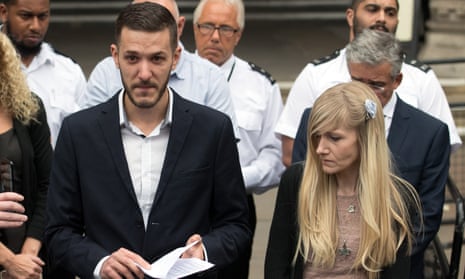Doctors and other healthcare staff, looking after very sick children, are urged to take steps early on if disagreements begin to surface with parents over the treatment of their child.
That is to avoid the sort of breakdown of trust and public trauma that took place in the cases of Charlie Gard, Alfie Evans and Ashya King.
In all three cases, the rights and wrongs of the child’s care were discussed widely on social media. Donald Trump and Pope Francis were among those who offered their opinions on the Gard case, calling for Charlie to be allowed to go to the United States for an experimental treatment. Breakdowns in trust between parents and NHS staff led to the medical and ethical issues being thrashed out in courts of law with demonstrators outside.
Advice to professionals from the Royal College of Paediatrics and Child Health on preventing and managing conflicts has now been published in the hope of avoiding this sort of escalation which, they say, benefits neither doctors nor families – and certainly not the child.
“Conflict is physically and mentally damaging for everyone involved and, in recent years, as cases are propelled into the public domain, further complexity is added to an already sensitive and stressful situation,” said Dr Mike Linney, lead author and college registrar.
It is not helpful to anybody when a case is picked up on Facebook or Twitter, he said. “Once you start getting involved in social media, you can’t control it. I don’t think there is sufficient advice out there about what the effects of social media can be.”
Healthcare staff will read comments that may not be accurate or appropriate, but cannot answer back because they don’t have the right to discuss the case. “Those who are involved want to put out more information, but they can’t,” he said.
It is not helpful to families either. Sarah Barclay, founder of the Medical Mediation Foundation, said: “One of the impacts is to make parents feel that if they are not challenging and fighting, they are not being good enough parents.”
Sometimes parents cannot understand why medical science does not have an answer and want to believe there may be a cure in another country. They may have heard of a therapy abroad and be suspicious that the NHS will not pay for it.
If it works, however, the child will have it, said Dr Peter-Marc Fortune, president of the Paediatric Intensive Care Society. “I can’t remember an occurrence with a well-proven therapy on the NHS. If it is available elsewhere, I or a colleague would be very ready to have a very open conversation about how to facilitate that.”
More difficult is the situation where there is little evidence that the therapy will work. “It is a common situation across all levels of medicine and paediatrics from the most common situations to life-threatening conditions,” said Linney. “It is all to do with what the risks are of that treatment and what its value is.”
“The problem with this type of therapy is that there is often very little information around the good or the harm it can cause. We wrestle with that as much as the parents do,” said Fortune.
The best way forward is to research and discuss these therapies together with the parents, so that they can learn together what the benefits or harms might be.
The advice lists warning signs of a potential breakdown in relationships. First comes avoidance behaviour. “Parents avoiding health or specific health professionals, health professionals themselves avoiding the family,” it says.
Then there is demanding or controlling behaviour. “Parents allowing only specific professionals to look after their child, questioning expertise or feeling the need to record all conversations. Health professionals finding every conversation with families a battle,” says the advice.
Beyond that, there is micromanagement, described as “parents requesting authority and review on every aspect of care”.
As breakdown escalates, which can lead to entrenched positions. “Development of separate camps, an ‘us and them’ attitude. Eventually the conflict itself becomes the focus,” says the document.
Professionals are urged to avoid giving families inappropriate expectations, the document urges. They should bring in palliative care teams early on, not just for end of life care, but when treatment options are being discussed.
Psychological support should be offered to both families and staff, it adds, and expert ethical and legal advice should be sought early on and mediation services should be considered at an early stage.
